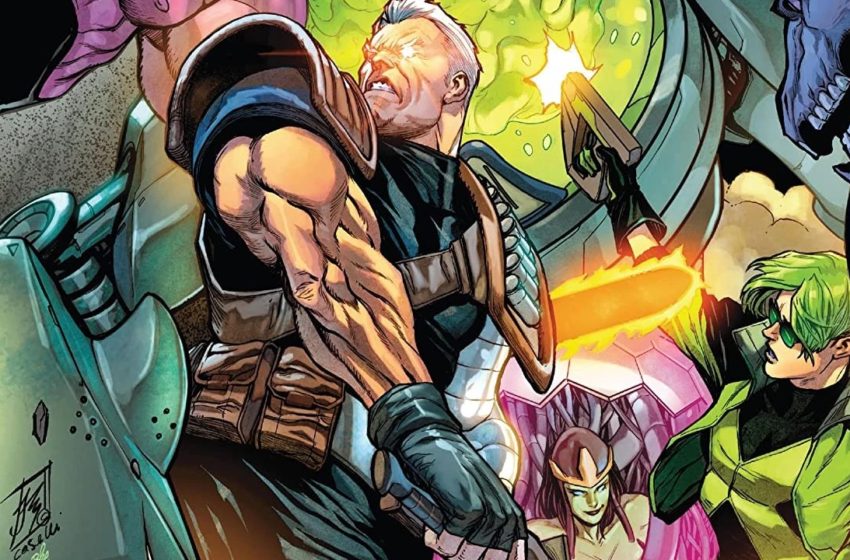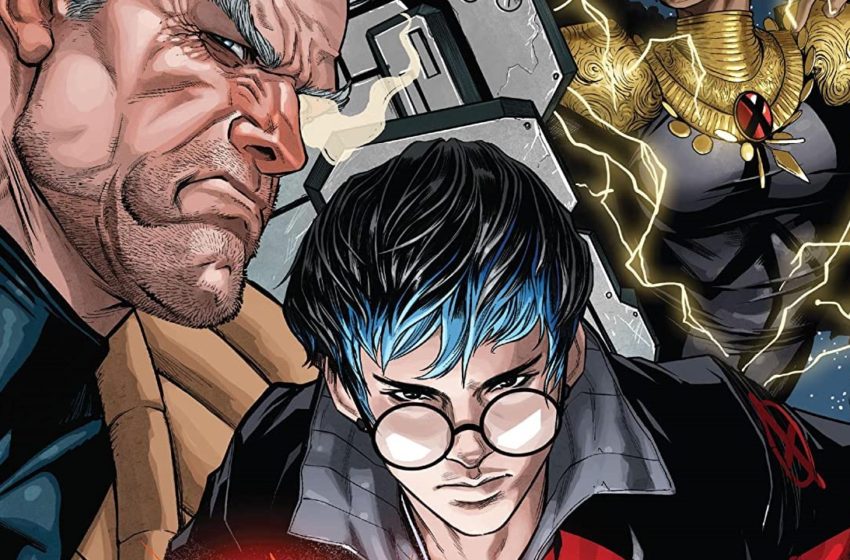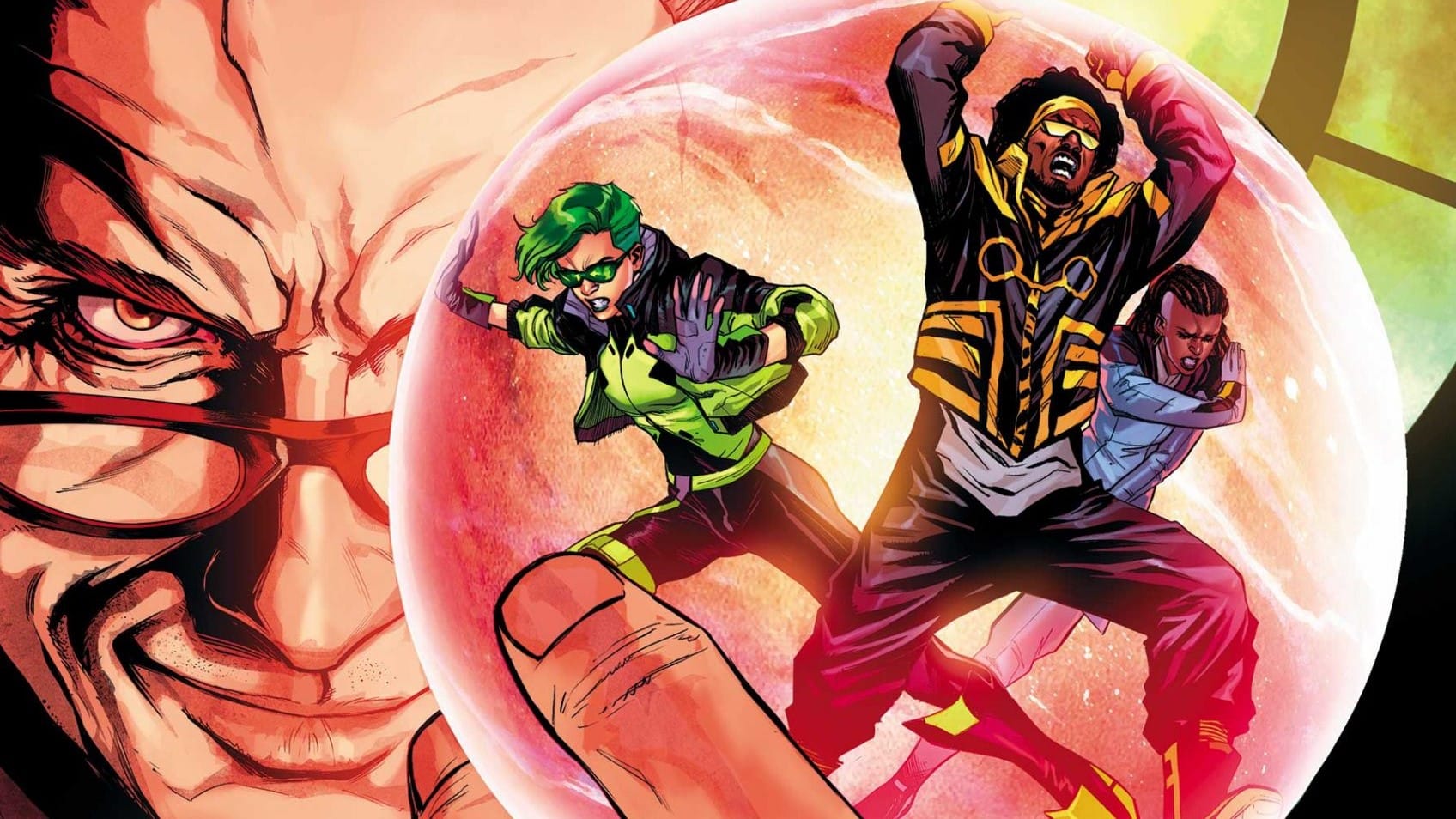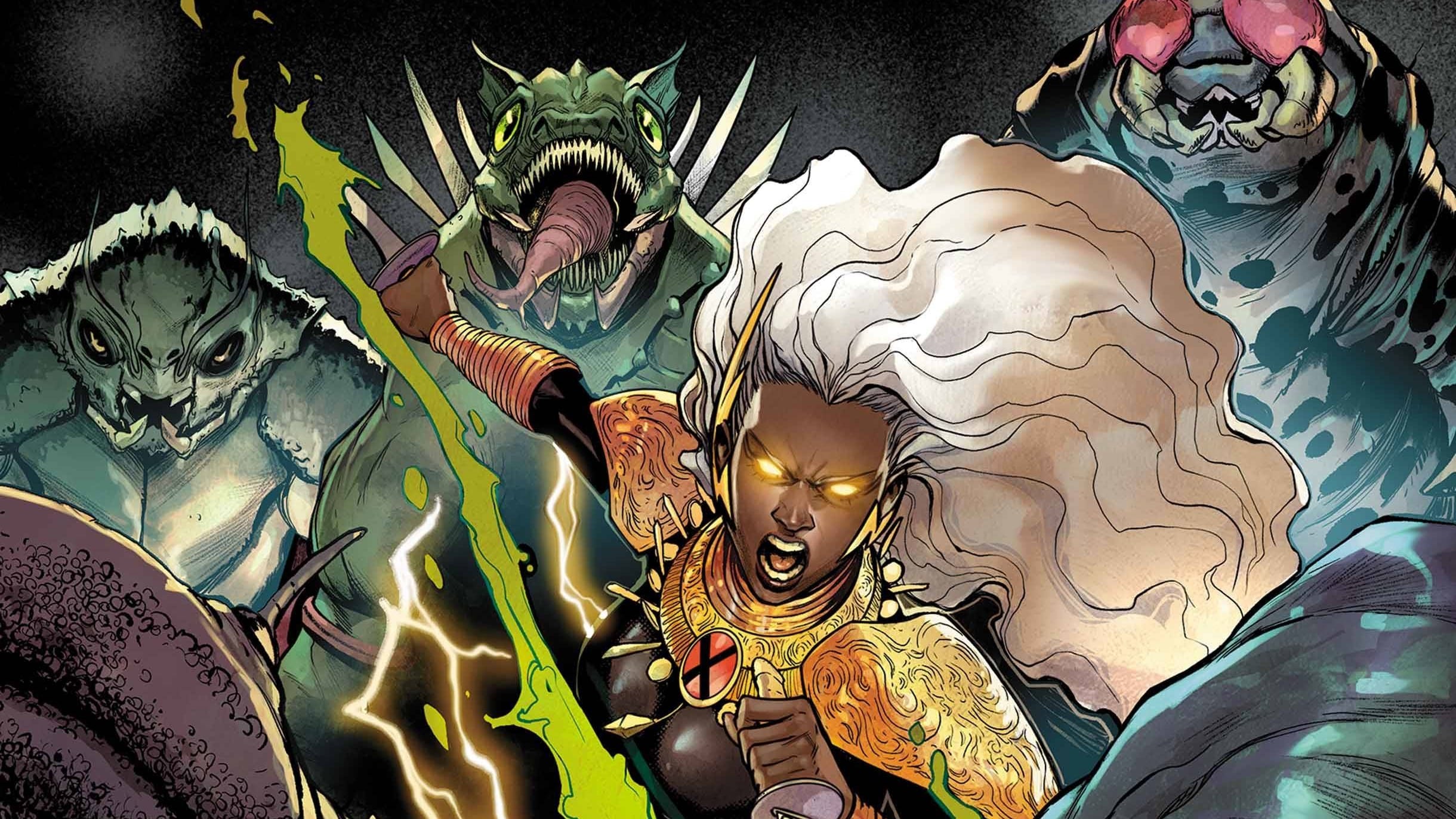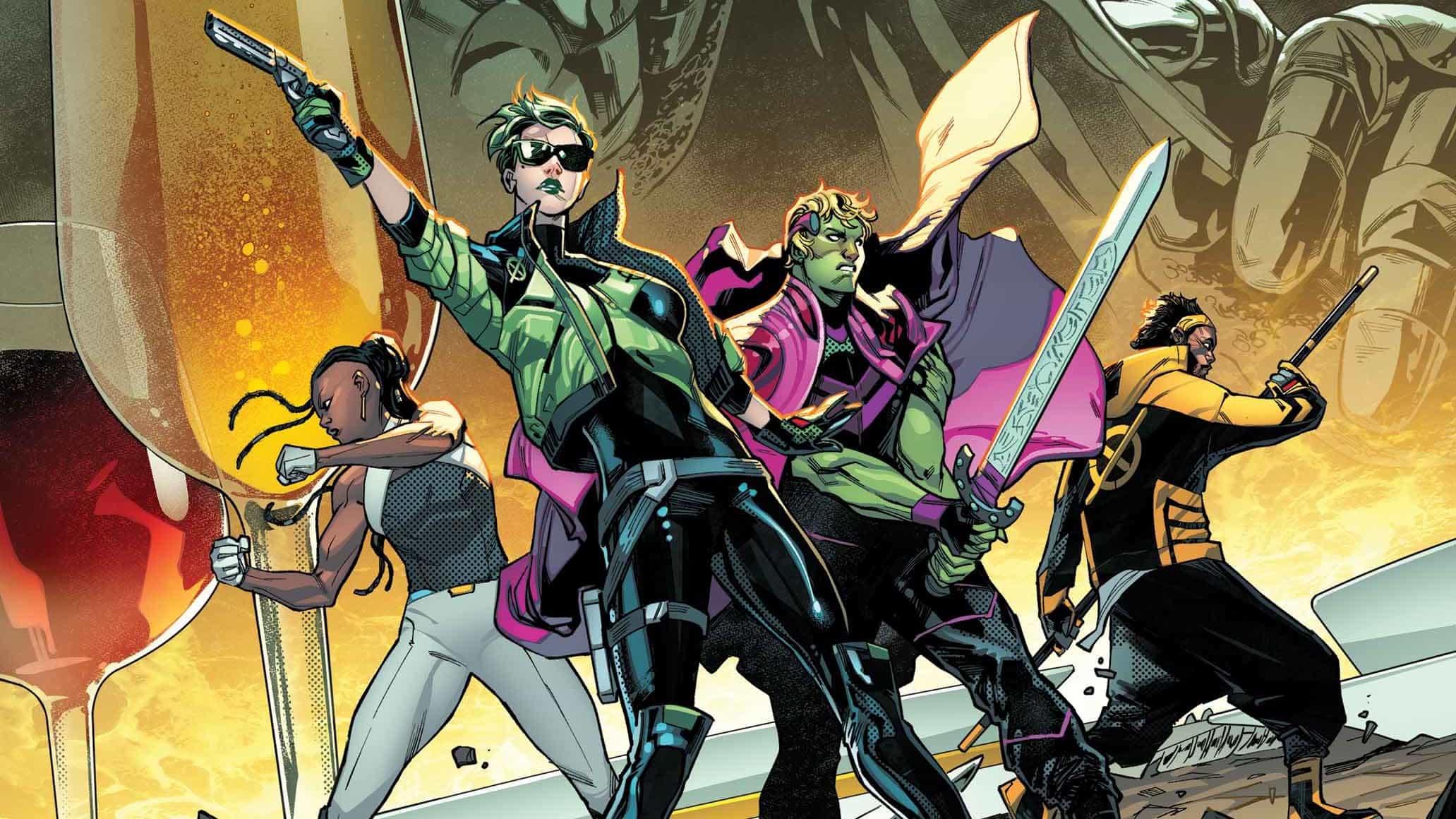Double and triple crosses abound as SWORD #11 makes a landing from Al Ewing, Jacopo Camagni, Fernando Sifuentes and Ariana Maher.
I love a good mystery. There’s something deeply, viscerally fulfilling about that moment when you’ve finally pieced it all together, analyzed clue after clue, hint after hint, and you know exactly where the story’s headed. You’ve Successfully Engaged, you know every trope in play here, and you’re ready to turn the page and be told that yeah, you are a clever little cookie! Great job!
But, if I’m being honest, that’s nowhere near as satisfying as turning again, and realizing that I only figured out part of the puzzle.
There’s a frustration there, sure. In a lot of stories, it can seem cheap, especially if the revelation is tied to things that we, as a reader, had no way of anticipating — not realizing there were questions on the other side of the test is far less disappointing than being told after the fact that half of your grade is based on something entirely unrelated to what you covered. S.W.O.R.D. #11, if anything, feels more like I didn’t finish reading the prompt, and only answered part of the question — everything I needed was there from the start.
S.W.O.R.D. has always been a book that’s big on characterization, which has been one of Ewing’s strengths for as long as I’ve been reading his comics. There are some impressive set pieces, for sure (Camagni and Sanchez-Almara do solid work throughout, despite not quite reaching the heights of the book’s third issue), but I’m here for the characters, and the series has consistently delivered in that regard.
Brand has been clear from the start, not just of S.W.O.R.D., but from her first appearance, that she has larger concerns than anything as petty as humans, mutants, or even the Earth itself. She’s a character who can justifiably laugh at how cute Beast’s forays into “Baby’s First War Crimes” are, even if they’ve been horrifying us since the days of the Legacy Virus, after all. That she’d leverage all of the changes going on planet(s)side to get herself into a better position is entirely keeping in character, especially considering her history of having more going on than she typically lets people see. I think it’s an understated bit of genius on Ewing’s part that while we’ve gotten a lot of exposition from Brand, in a series of reports with increasingly paranoid redactions and levels of security, we never see actual narration from her. Even when we think we’re seeing what’s going on in her head, the data pages have always been filtered through what she’s willing to risk anyone else seeing, and it’s never the whole story. This is doubly fascinating considering how many parallels there are between her speech to Gyrich (I’d say pour one out, but eh) and Taki’s narration last issue, and how they both end up with very different mentalities despite initially similar lines of thinking. Forging your own identity, and finding your place in a community that doesn’t accept all of you is, or at least should be a major theme of the franchise, and it’s refreshing to see multiple nuanced takes on it throughout the same book. I’m honestly thrilled to see where Ewing takes all if this, whether that’s in X-Men Red, or another, more blatantly cosmic book.
While S.W.O.R.D.’s throughline has always been about “what comes next,” it’s worth looking back, here at the end, and thinking about the book as a whole. Through it’s eleven issues, it’s been tied into three separate events (King in Black, The Hellfire Gala, and The Last Annihilation), and still managed to not only maintain a clear identity, but spend time spotlighting most of its characters with a focus that they rarely get — I don’t think anyone was expecting Manifold to be the star of one of the best issues Marvel put out in 2021. While I wish we could have spent a little more time with certain characters (Frenzy, Khora, where are your solos), even the ones who didn’t get viewpoint issues still manage to be clearly defined, with a sense of internality that sets the book apart from many of its peers.
Despite multiple swerves, from two issues pivoting to focus on Storm and Arakko, to Kid Cable being swapped out for his older self, the title never seemed out of control, or anything less than meticulously planned out, a far cry from the days of books dealing with editorially mandated changes coming out of nowhere — I haven’t seen a book roll with the punches this seamlessly since Morrison’s JLA had to contend with Hippolyta and and the electric Superman. For as many (often valid) complaints as there have been with the current era of the X-Line, S.W.O.R.D. speaks to how well the office functions as a whole — I don’t think anyone could have imagined a book like this working in the X-Men of 2018, let alone delivering what are arguably three of the best issues of the year. By all accounts, S.W.O.R.D. should have been a mess. Instead, we got eleven amazing issues, a better mystery than the mysteries, deeper character spotlights than we’ve seen in certain flagship books I could name, and a reminder of why I loved X-Men to begin with. This is what happened, but, like Brand herself, I can’t wait to see what comes next.

Lex Smith
Lex Smith is probably tired right now. They're definitely trying not to think about everything they have to write! When they're not staring at a blank Word document, odds are they're tweeting, playing Pokémon or wondering how they ended up with such a smart-ass kid.

